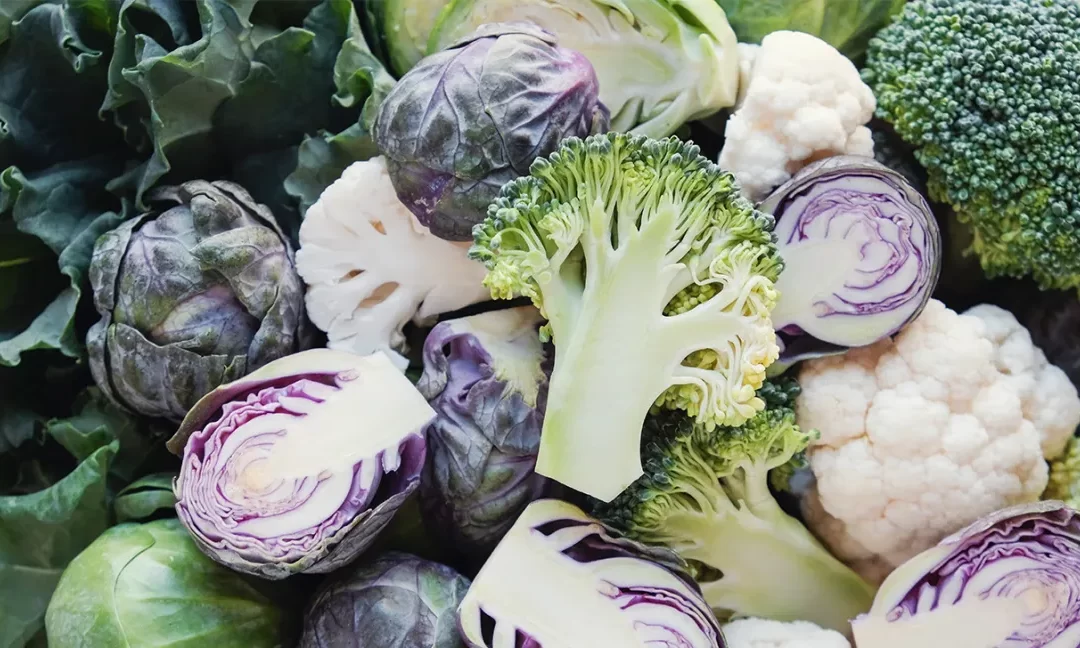If you’ve read the news lately, you’re probably aware that various forms of cancers are on the rise – particularly hormone-related cancers like prostate and breast cancer. The truth is that almost everyone knows somebody who has been affected by cancer, whether it’s your mother or a friend from high school. While it’s sad that hormone-related cancers are on the rise, there’s reason to be hopeful – intense studies are beginning to show that a key compound in common vegetables is lowering the risk of sex-related cancers.
We’re talking about diindolylmethane, or DIM for short – a powerful hormone balancer and antioxidant that supports wellness and prevents damage from harmful free radicals. Instead of eating pounds and pounds of cruciferous veggies every day, however, men and women can now benefit from DIM via a dietary supplement.
What is DIM?
Over the last few decades, it’s been shown in dozens of studies how beneficial veggies are in reducing the risk of stroke, cancer, heart disease, and more. Most of the medical advantages found in plants are due to the phytonutrients within them, which are nutrients that promote healing and health. DIM is one of these aforementioned phytonutrients.
As a compound, DIM helps shift the balance of male and female sex hormones – testosterone and estrogen. When balanced, men and women have a lowered risk of cancer.
Benefits of DIM for Women
One of the primary reasons women use DIM as a supplement is for estrogen metabolism. Often, women suffer from an imbalance of estrogen. Other times, they have too much estrogen, or estrogen dominance. Both situations lead to undesirable side effects like PMS, breast tenderness, and severe headaches.
DIM works during the estrogen metabolism process to help the liver create “good” estrogen (2OHE1) and lower amounts of “bad” estrogen (40HE1 and 16OHE1).
In addition to balancing hormones like estrogen, DIM has been shown to help with the following:
- Painful or Heavy Periods
- PMS
- Fibroids
- Adenomyosis
- Bloating Before Period
- Fibrocystic Breasts
- Perimenopause
- Menopause
- Hair Loss
Benefits of DIM for Men
Traditionally, DIM is used by women to lower the risk of estrogen-based cancers like cervical and breast cancers. As mentioned above, it also helps women balance “good” and “bad” estrogen and works very effectively alongside hormone replacement therapy (HRT). However, new studies show that men benefit from DIM too.
DIM helps men avoid testosterone metabolism, particularly the unwanted conversion of testosterone to estrogen. DIM has also been shown to lower the risk of prostate cancer and prostate enlargement in men – two maladies that plague many men today.
DIM is also showing promising signs of helping men deal with low testosterone as they age. Since DIM promotes increased estrogen metabolism, unmetabolized estrogen levels get lower. When they do, 2-hydroxy-estrogens get higher. 2-hydroxy-estrogens can displace testosterone, thereby setting it free. The combined effects that DIM has in reducing unmetabolized estrogen and increasing 2-hydroxy-estrogens may allow for higher levels of free testosterone.
Both changes help restore and maintain a more youthful balance between estrogen and free testosterone. Additional benefits of DIM for men include:
- Improved Muscle Development
- Improved Mood
- Increase in Free Testosterone Levels
- Higher Sex Drive
- Longer-Lasting Erections
- Enhanced Cardiovascular Health
Can DIM Help Me?
Whether you’re a man or woman, suffering from hormonal imbalances is a very real issue. Studies show that vegetables like broccoli and cauliflower play a role in reducing the effects of these imbalances, like hormone-based cancers. Since DIM is produced naturally in your body when you eat good veggies, taking it as a supplement may be very helpful to you.
If you’re experiencing any of the symptoms below, try talking to your doctor about DIM. You might have stumbled upon the breakthrough solution you need for the long-running problems ailing you.
- Weight Gain
- Memory Issues
- An Overabundance of Toxins in the Body
- Lack of Antioxidants in the Body
- Unhealthy or Enlarged Prostate
- Low Testosterone
- Poor Mood
- Depression
- Lack of Muscle Development
- Hormone Imbalances

